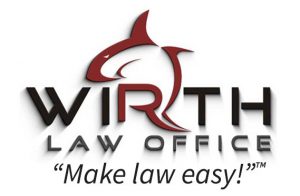 Common Law Marriage Is Legal
Common Law Marriage Is Legal
Lawyers are often asked whether common law marriage really exists and whether it is legal. In Oklahoma, the answer to both questions is yes. And unfortunately, this question usually arises when something has gone wrong. Questions about an Oklahoma common law marriage often arise when a couple decides to part ways only to be surprised that their once casual relationship has morphed into something else. This is when a common law marriage attorney in Tahlequah can really help.
Ending A Common Law Marriage In Oklahoma
If a common law marriage exists, a couple seeking to end their relationship must get a formal divorce. Failure to do so can cause all sorts of problems for the parties involved, including claims of bigamy or adultery later.
The other way this issue usually arises is upon the death of one of the partners. Common law marriage affects a person’s inheritance rights.
What Oklahoma Law Says
On one hand, Oklahoma law requires that a marriage is “contracted by a formal ceremony.” Okla. Stat. tit. 43 § 7a
On the other hand, courts recognize common law marriage under specific circumstances. Holding yourself out as married over a period of years can give rise to a common law marriage.
How To Tell If You Are In A Common Law Marriage
Courts look to a number of factors to determine if a common law marriage exists. Most of these factors relate to the couple’s intent and how they have held themselves out to the community over time. A court may look at whether:
- Both parties had the legal capacity to be married. If they were married to other people at the time of their cohabitation, no common law marriage can exist.
- There is a mutual agreement to be married.
- The relationship was intended to be permanent.
- The couple lives together as husband and wife.
- Have the parties acted as if they are married? This could include such things as how they refer to each other, buying property together, co-mingling finances, and the like.
The old adage of cohabiting for a period of seven years is not a correct interpretation of the law. The issue turns more on the couple’s intent and actions over time. Facts such as holding themselves out as married to friends and family, opening joint bank and credit card accounts, and taking out a joint mortgage can all be used to prove the existence of a common law marriage.
What Happens If You Don’t Get A Legal Divorce
You cannot remarry if you are already married. To do so opens a person to a charge of bigamy. In that case, the new marriage is invalidated until the common law marriage can be dissolved.
Children of a common law marriage raise special issues. Child custody and support may become an issue. Usually, the male partner is deemed to be the presumptive father of any children of the union.
If a common law marriage exists, the partners will continue to be financially entangled. Either spouse can be held liable for the debts of the other even after the couple stops living together. Additionally, one spouse could make a claim for the marital property against the other spouse long after the couple has ceased cohabiting.
Finally, a common law spouse will have a possible inheritance claim that the deceased partner would not have intended.
A formal divorce settles all common law marriage issues. It allows you to remarry. Custody and child support are resolved as part of the divorce. Spousal support may be ordered or not as part of the divorce. Finally, a formal divorce can also provide protection for your estate after you die.
Tahlequah Common Law Marriage Attorney
The entry point for a person seeking help with a common law marriage may revolve around seeking help with the divorce. But other issues prompting legal help can be found in estate planning, retirement, finances, and adoption. Seeking counsel from an experienced Tahlequah common law marriage attorney can be an excellent first step in resolving the issue.
Low-cost Initial Consultation: Tahlequah Common Law Marriage Attorney
For a low-cost consultation with a Tahlequah attorney, call Wirth Law Office – Tahlequah at 918-458-2677 or toll free at 1-888-447-7262.
Or, if you prefer e-mail, you may enter a legal question in the form at the top right of this page and we’ll contact you by e-mail as soon as possible.








